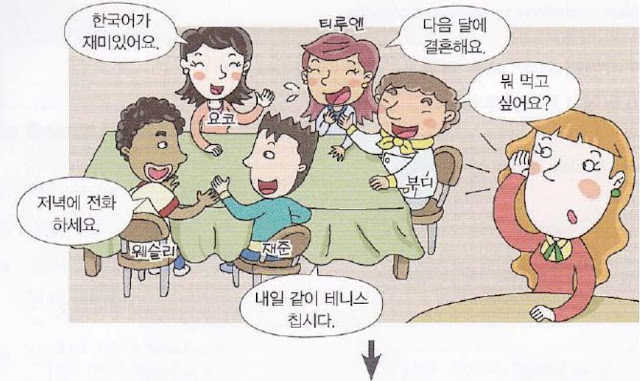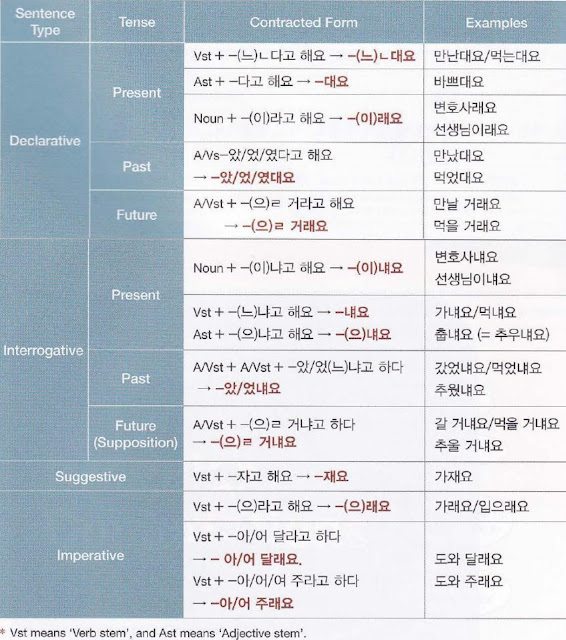
 요코 씨는 한국어가 재미있대요.
요코 씨는 한국어가 재미있대요.
Yoko said Korean is interesting.
티루엔 씨는 다음 달에 결혼한대요.
Tiluen said she’s getting married next month.
웨슬리 씨는 저녁에 전화하래요.
Wesley said to call this evening.
재준 씨는 내일 같이 테니스를 치재요.
Jaejun said we should play tennis tomorrow.
부디 씨는 뭐 먹고 싶냬요.
Budi wants to know what (you/we) want to eat.
Indirect quotations are often used in contracted forms, particularly in colloquial speech.
 Conversation:
Conversation:
A: 에릭 씨가 요즘 어떻게 지내는지 알아요?
Do you know how Eric is doing these days?
B: 네, 요즘 한국어를 배운대요.
Yes, he said he’s been studying Korean.
A: 지수 씨가 주말에 같이 등산 가재요. 시간 있어요?
Jisu said we should go hiking this weekend. Do you have time?
B: 네, 있어요. 같이 가요.
Yes, I have time. Let’s go.
A: 사람들이 내일 몇 시에 모이냬요.
People are asking what time we’ll meet up tomorrow.
B: 9시까지 학교 앞으로 오라고 해 주세요.
Please tell them to come to the front of the school by 9 o’clock.
A: 재준 씨, 어디에 가요? Jaejun, where are you going?
B: 유키 씨가 숙제를 좀 도와 달래요. 그래서 유키 씨를 만나러 가요.
Yuki said she wanted to help with her homework. So I’m going to meet her.
>> Full of ‘Korean grammar in use – Beginner’: Click here
>> Fanpage: Say Hi Korean

good